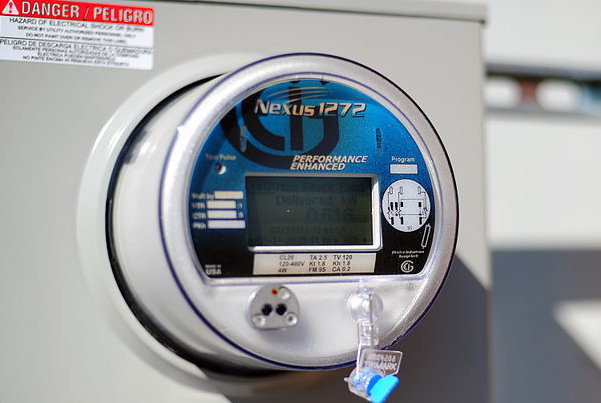Smart Grid Panel: Many Questions, Few Answers

A five person panel in Vermont offered vague reassurances recently that implementing a smart grid would be a good for everyone. But when an audience of about 30 people started peppering the panel with questions about security, privacy, cost, and threats to human and non-human health, the panel had little more to offer beyond those vague reassurances.
Kevin Jones, leader of the Smart Grid Project which is supported by a $450,000 federal stimulus grant, described how a smart grid could lead to an energy-efficient future in which we all drive electric cars and use much less fossil fuel energy. He touched briefly on cost savings and data security in the new system, but skipped past health issues without expressing an opinion.
Jones acknowledged that people are concerned by the possible impact of increased and cumulative exposure to the electromagnetic radiation (EMR) emitted by smart meters with unknown effects on human DNA, the human nervous system, or cancer production, among other concerns. He said the best way to deal with such concerns was to opt out of having a smart meter in your home or business, and that opting out was simple to do.
State Senator Dick McCormack reinforced the opt-out option, directing attention to the recently enacted. Introduced as evidence in proceedings before the California Public Utilities commission, the Vermont Statute
- requires utilities to provide customers with written notice prior to installation;
- allows a customer to choose not to have a smart meter installed, with no cost to the customer for making that choice;
- Allows customers who already have smart meters to have the utility remove them, at no cost to the customer.
Central Vermont Public Service meter engineer Rick Hackett also spoke hopefully of future benefits of the smart grid system that CVPS expects to have installed statewide by the end of 2012. He noted the company is currently giving customers 45 days notice before installation, while offering reassurance that the privacy of personal data is protected by law and that security of the system would be very tight. He downplayed health concerns, noting that smart meters gave off less EMR than cell phones.
Although Hackett acknowledged that fiber optic cable was his company’s first choice for connecting smart grid substations to the main data center, he suggested that wireless connections to the smart meters was more cost effective and that he was not aware of any smart meters that communicate with fiber.
Attorney James Porter of the Vermont Public Service Board, which is charged with regulating electric utilities to serve the public interest at a profit, noted that proceedings before his agency began more than five years ago, confined mostly to interactions among the identified stakeholders and a few interveners Although there has been little opportunity for direct public input, Porter suggested the smart grid would be good for Vermont and would allow customers to take charge.
He referred to a Vermont Dept. of Health study relating to smart meters noted that the health agency “found everything to be within federal standards.” In response to a question from the audience, he acknowledged that those standards have not been updated since 1986, but added that the standards are reviewed periodically and the feds have seen no need to change them.
He also acknowledged that the 1986 standards are concerned only with thermal effects of EMR, the most familiar form of which is microwave cooking. The quarter-century old federal standards do not assess cellular electric charges, DNA impact, brain tumors, or any other impact besides thermal.
Addressing that point, Senator McCormack acknowledged the limited value of current science relating to smart meters and EMR, saying that “What we got was not persuasive.” That was why, he noted, the legislature did not ban smart meters. The legislature required the Dept. of Health to submit an updated version of its original report by January 15, 2013.
Near the end of the meeting, CVPS engineer Hackett underscored the uncertainty of the benefits of smart meters. He explained that significant savings will only show up if people accept smart meters, learn the technology, and adapt their behavior to take advantage of it.




